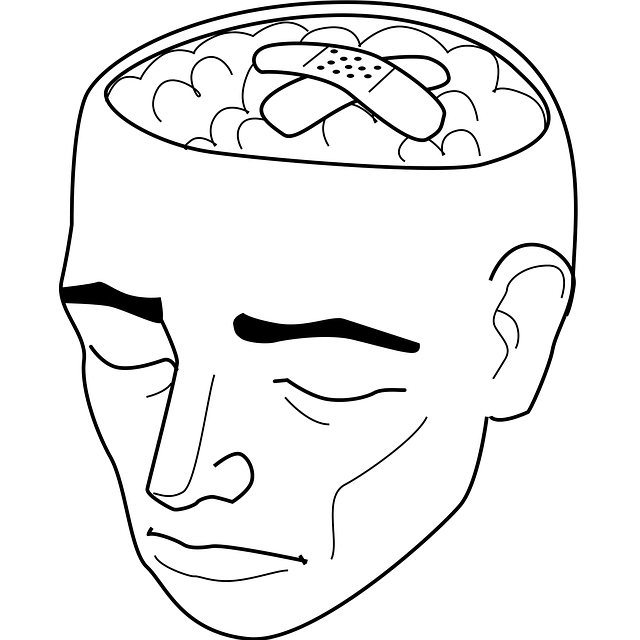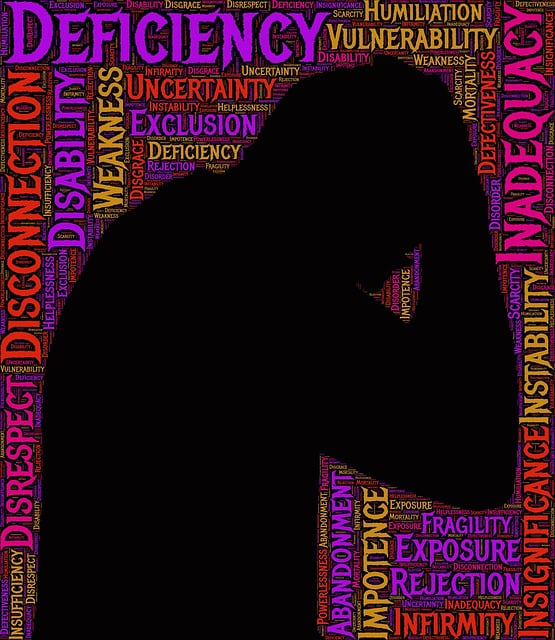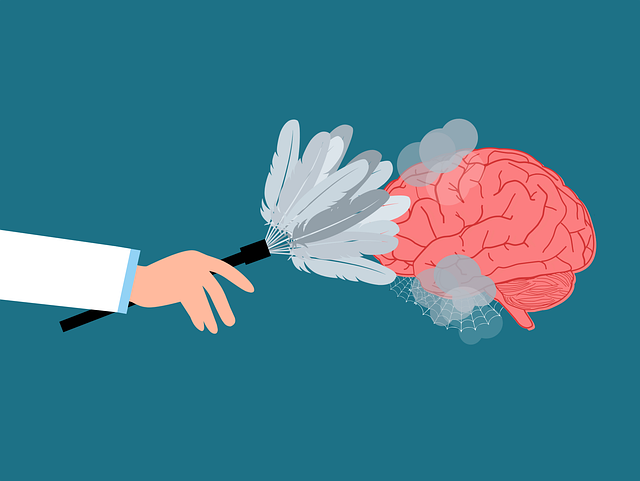The stigma surrounding mental illness acts as a significant barrier to treatment, isolation, and self-esteem. Englewood Family Counseling Therapy (EFCT) addresses this issue through multi-faceted initiatives, including community education, workshops, and awareness campaigns that dispel myths about mental health. They empower families with resilience-building skills and evidence-based therapeutic practices like Mind Over Matter principles, promoting early intervention and proactive mental well-being. EFCT's community engagement strategies reduce stigma, enhance mental health literacy, and foster more supportive environments where individuals feel comfortable seeking help for their mental health challenges.
Mental illness stigma remains a significant barrier to seeking help, with profound implications for individuals and communities. This article explores effective strategies to reduce this pervasive issue. We delve into the impact of stigma on mental health, highlighting its isolative effects.
Englewood Family Counseling Therapy offers unique insights, detailing their counseling approach aimed at destigmatizing mental illness through personalized support and education. Additionally, we examine the role of community engagement and education in fostering understanding and breaking down barriers, ultimately paving a path to a more inclusive society for those facing mental health challenges.
- Understanding the Impact of Stigma on Mental Health
- Strategies for Englewood Family Counseling Therapy in Reducing Stigma
- Community Engagement and Education: A Path to Change
Understanding the Impact of Stigma on Mental Health

Stigma surrounding mental illness can have profound effects on individuals’ well-being and recovery journey. When a person faces societal discrimination due to their mental health condition, it often leads to isolation, decreased self-worth, and a reluctance to seek professional help. This internalized shame can be especially detrimental for those already navigating the complexities of mental health struggles. For instance, at Englewood Family Counseling Therapy, therapists understand that stigma can create barriers to treatment, hindering clients’ ability to access much-needed support and resources.
Reducing the stigma associated with mental illness is crucial in fostering an environment where individuals feel empowered to prioritize their mental health. By raising awareness about mental disorders as treatable medical conditions, we can encourage empathy and understanding from both peers and communities. Through initiatives that promote education, open conversations, and the dissemination of evidence-based practices like Mind Over Matter principles and effective communication strategies, inner strength development becomes a viable path for those dealing with mental health challenges.
Strategies for Englewood Family Counseling Therapy in Reducing Stigma

Englewood Family Counseling Therapy (EFCT) employs a multi-faceted approach to reduce the stigma surrounding mental illness. One key strategy involves educating communities about mental health, fostering open conversations, and promoting understanding through workshops and awareness campaigns. These initiatives aim to dispel myths and misconceptions, emphasizing that mental illness is a common human experience, just like physical ailments. EFCT also focuses on building resilience and enhancing coping mechanisms within families, empowering them to support loved ones struggling with depression or other mood disorders.
The therapy center integrates depression prevention strategies into its counseling services, teaching individuals and families effective stress management techniques and emotional regulation skills. By emphasizing the importance of self-care and early intervention, EFCT encourages proactive measures to maintain mental well-being. Additionally, they promote mood management through evidence-based therapeutic practices, helping clients develop healthy coping strategies and build resilience to overcome challenges associated with mental illness.
Community Engagement and Education: A Path to Change

Community engagement and education play a pivotal role in reducing the stigma surrounding mental illness. By bringing awareness to local communities, Englewood Family Counseling Therapy can foster an environment where individuals feel comfortable seeking support. This involves hosting interactive events, workshops, and seminars that educate community members about various mental health conditions, their symptoms, and effective coping strategies. Such initiatives help dispel myths and misconceptions, encouraging early intervention and improved treatment outcomes.
Englewood Family Counseling Therapy’s efforts can extend to schools, workplaces, and community centers, ensuring a comprehensive approach. Offering Stress Management Workshops Organization, Inner Strength Development programs, and even Risk Management Planning for Mental Health Professionals can empower individuals to manage their mental well-being better. These educational strategies not only help in stigma reduction but also promote overall mental health literacy, leading to more empathetic and supportive communities.
Mental illness stigma, a significant barrier to seeking help, can be effectively addressed through a multi-faceted approach. Englewood Family Counseling Therapy emphasizes open dialogue and education as powerful tools to reduce stigma within communities. By engaging family members and fostering understanding, they play a vital role in normalizing mental health conversations. Through community engagement and education initiatives, it is possible to create an environment where individuals feel supported and empowered to prioritize their mental well-being without fear of judgment. This collaborative effort holds the key to breaking down the walls of stigma and promoting better mental health outcomes for all.













